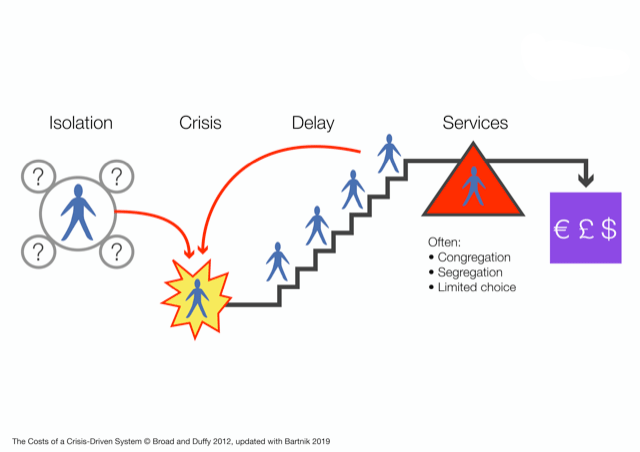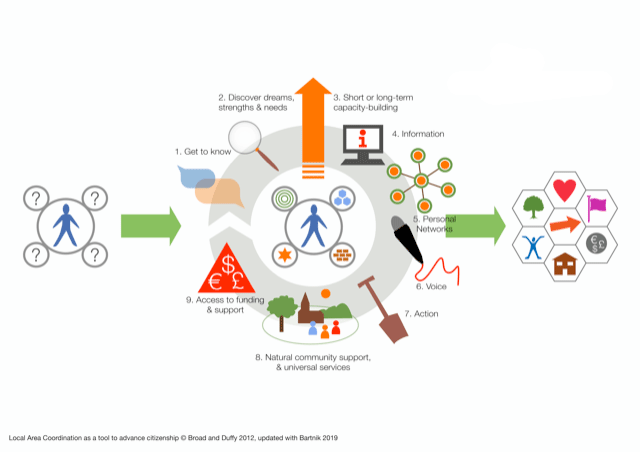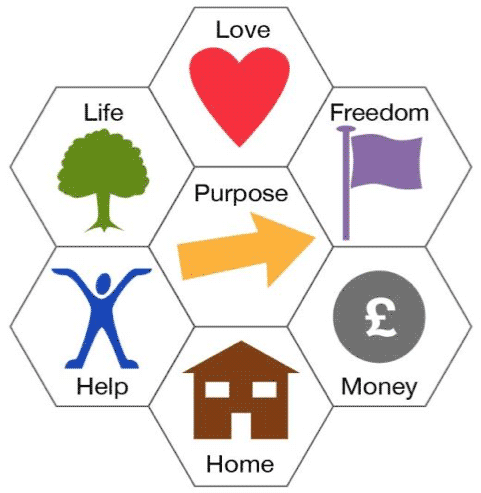From Service User to Citizen
Rather than waiting for people to fall into crisis, assessing needs/deficits and testing eligibility for services, it walks alongside people, families and communities to build resilience, personal relationships, choice and control, contribution and local solutions
From waiting in negativity,
 To a positive vision, a focus on strengths and aspirations, the value and power of self direction and welcoming, inclusive and supportive communities.
To a positive vision, a focus on strengths and aspirations, the value and power of self direction and welcoming, inclusive and supportive communities.
It’s about the rights and opportunities of active, valued Citizenship for all people in our communities.

The Local Area Coordination Vision
‘All people live in welcoming communities that provide friendship, mutual support, equity and opportunities for everyone’.
The Local Area Coordination Charter
‘To develop partnerships with individuals and families/carers as they build and pursue their goals and dreams for a good life and with local communities to strengthen their capacity to welcome, include and support all people as valued, contributing citizens.’


 To
To 
